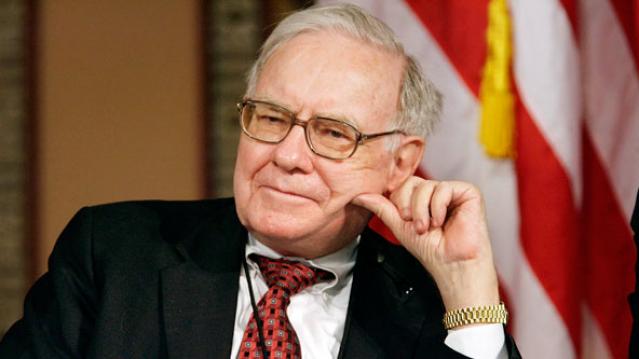The Phantom Billionaire Who’s Richer Than Warren Buffett

A practically unheard-of billionaire, Amancio Ortega, just blew past household name Warren Buffett to be the second-richest man in the world, according to Bloomberg. Microsoft founder Bill Gates, who is worth $85.5 billion, remains first.
Oretega, who has amassed a net worth of $71.5 billion, is the founding chairman of the Inditex fashion group, the world’s largest apparel retailer. Inditex is best known for its chain of Zara clothing and accessories shops, which had sales of $19.7 billion in fiscal 2014.
Related: Bill Gates Is the World’s Richest Man Again. Or Is He?
Worth noting is that Warren Buffett, whose net worth of $70.2 billion puts him at third place, would be in second-place if not for his philanthropic giving.
A native of Spain, Ortega refuses almost all interview requests and until 1999, no photograph of him had ever been published. However, Zara is not so low-profile. The world’s biggest fashion retailer operates over 6,600 stores in more than 88 countries.
Inditex has shown strong growth year over year. In March, it reported net profit up 5 percent from the previous fiscal year. In addition, the company said it planned to open up 480 more stores this year.
Related: America’s Highest Paid CEO Is Not Who You Think
Key to Ortega’s success has been keeping Zara’s manufacturing close to its home base in the ancient port city of La Coruña, rather than outsourcing production to China to cut costs. This allows Zara to act quickly on new trends and put new products into stories right away. Zara shops receive new shipments of clothing twice a week, virtually unheard of among retail stores.
If Inditex brands continue to grow and Zara’s popularity extends to millennials and beyond, the mysterious billionaire’s wealth could eventually push him to number one on the list.
Budget ‘Chaos’ Threatens Army Reset: Retired General
One thing is standing in the way of a major ongoing effort to reset the U.S. Army, writes Carter Ham, a retired four-star general who’s now president and CEO of the Association of the U.S. Army, at Defense One. “The problem is the Washington, D.C., budget quagmire.”
The issue is more than just a matter of funding levels. “What hurts more is the erratic, unreliable and downright harmful federal budget process,” which has forced the Army to plan based on stopgap “continuing resolutions” instead of approved budgets for nine straight fiscal years. “A slowdown in combat-related training, production delays in new weapons, and a postponement of increases in Army troop levels are among the immediate impacts of operating under this ill-named continuing resolution. It’s not continuous and it certainly doesn’t display resolve.”
Pentagon Pushes for Faster F-35 Cost Cuts

The Pentagon has taken over cost-cutting efforts for the F-35 program, which has been plagued by years of cost overruns, production delays and technical problems. The Defense Department rejected a cost-saving plan proposed by contractors including principal manufacturer Lockheed Martin as being too slow to produce substantial savings. Instead, it gave Lockheed a $60 million contract “to pursue further efficiency measures, with more oversight of how the money was spent,” The Wall Street Journal’s Doug Cameron reports. F-35 program leaders “say they want more of the cost-saving effort directed at smaller suppliers that haven’t been pressured enough.” The Pentagon plans to cut the price of the F-35A model used by the Air Force from a recent $94.6 million each to around $80 million by 2020. Overall, the price of developing the F-35 has climbed above $400 billion, with the total program cost now projected at $1.53 trillion. (Wall Street Journal, CNBC)
Chart of the Day - October 6, 2017
Financial performance for insurers in the individual Obamacare markets is improving, driven by higher premiums and slower growth in claims. This suggests that the market is stabilizing. (Kaiser Family Foundation)
Quote of the Day - October 5, 2017
"The train's left the station, and if you're a budget hawk, you were left at the station." -- Rep. Mark Sanford, R-S.C.


